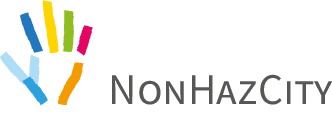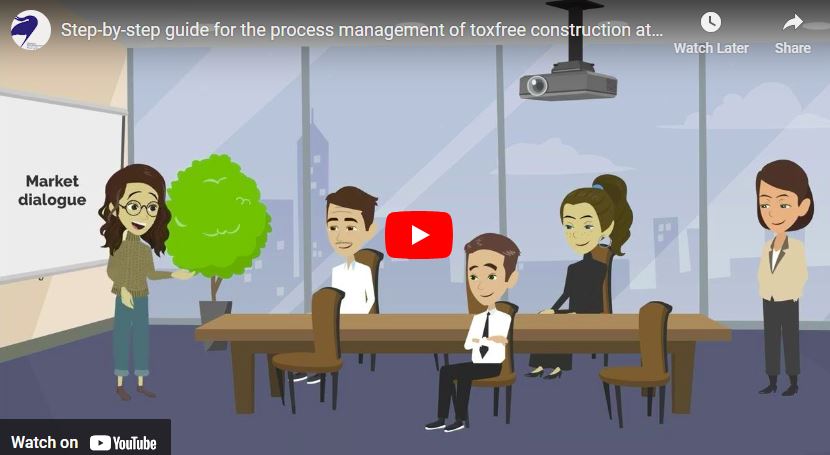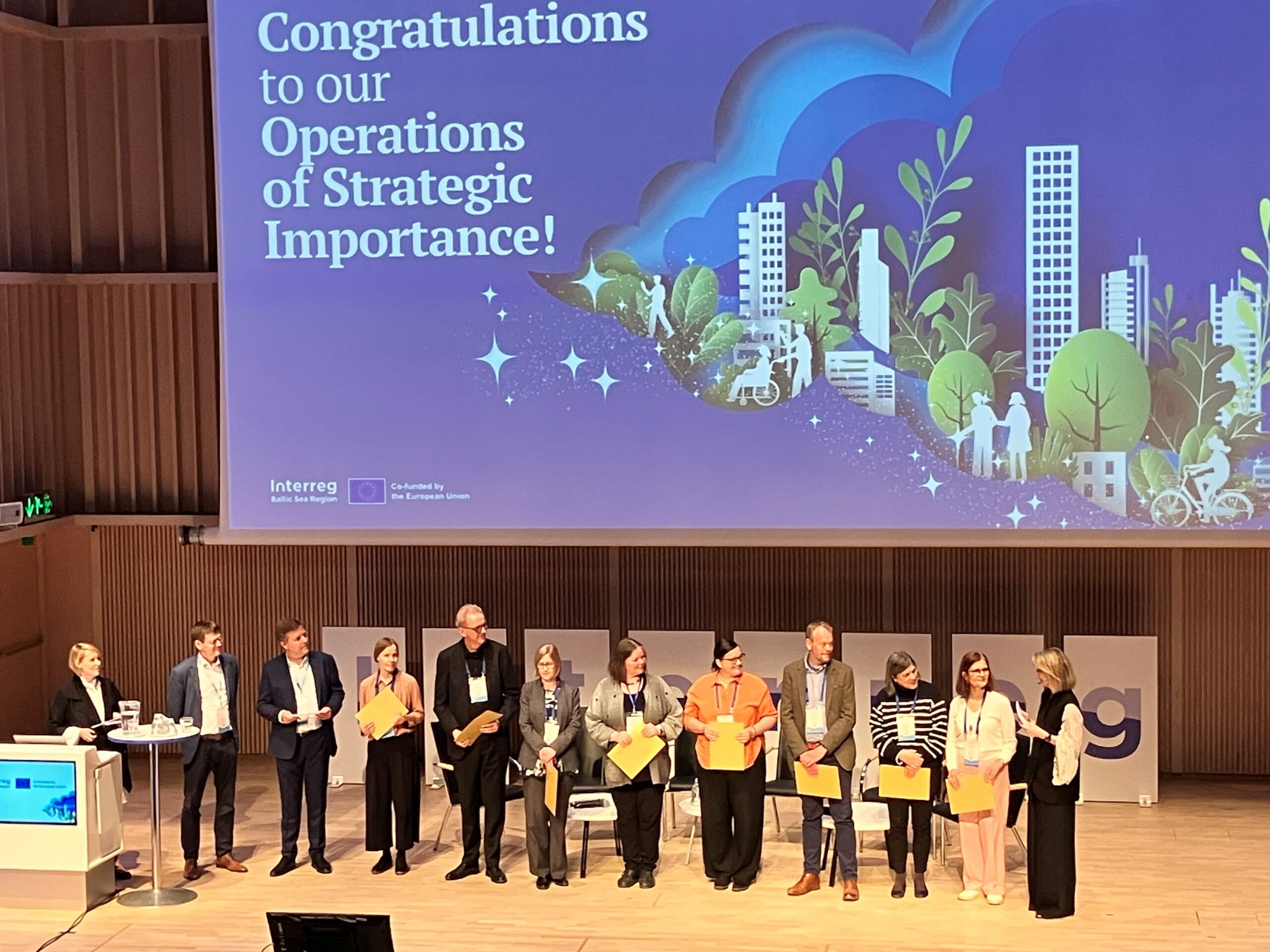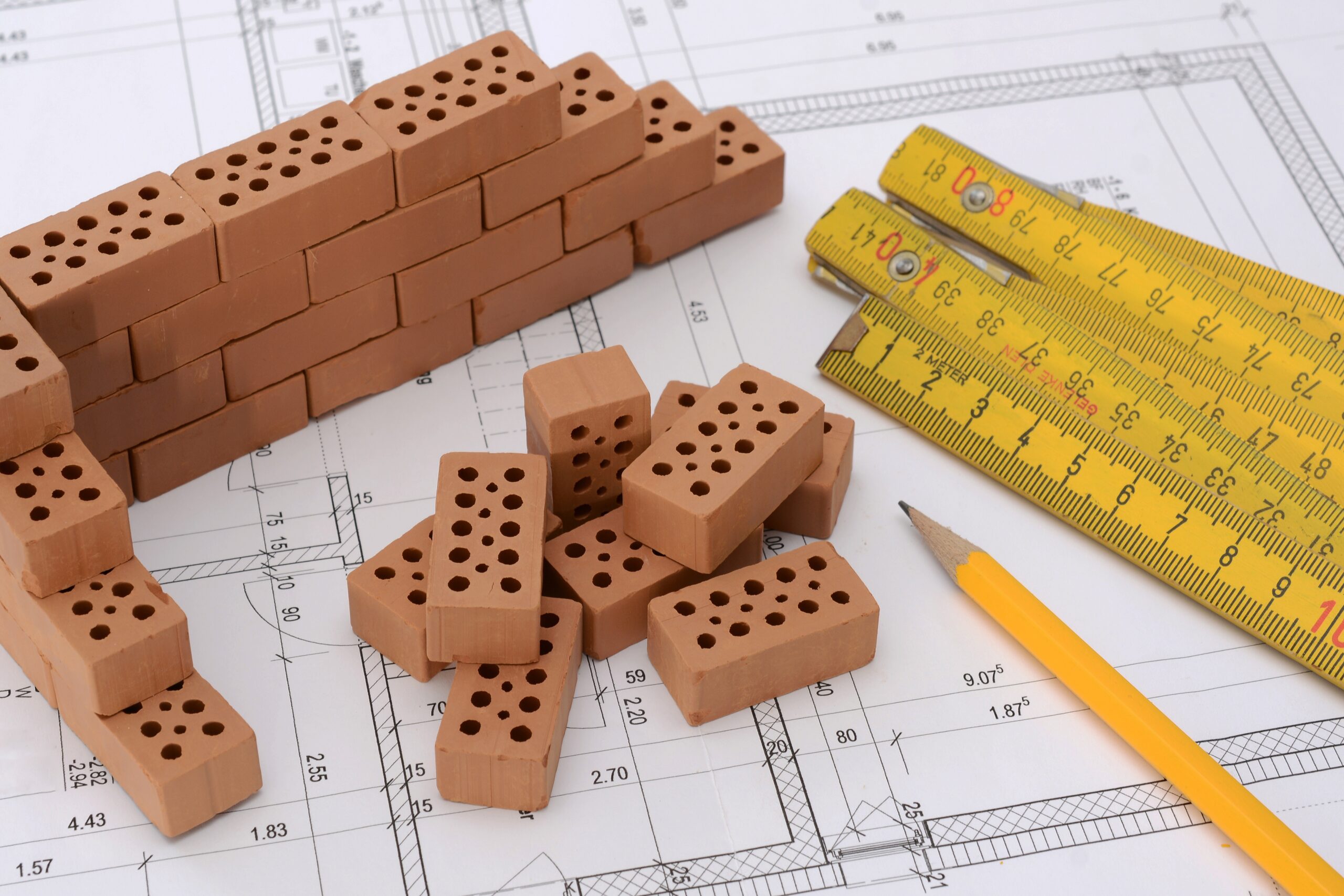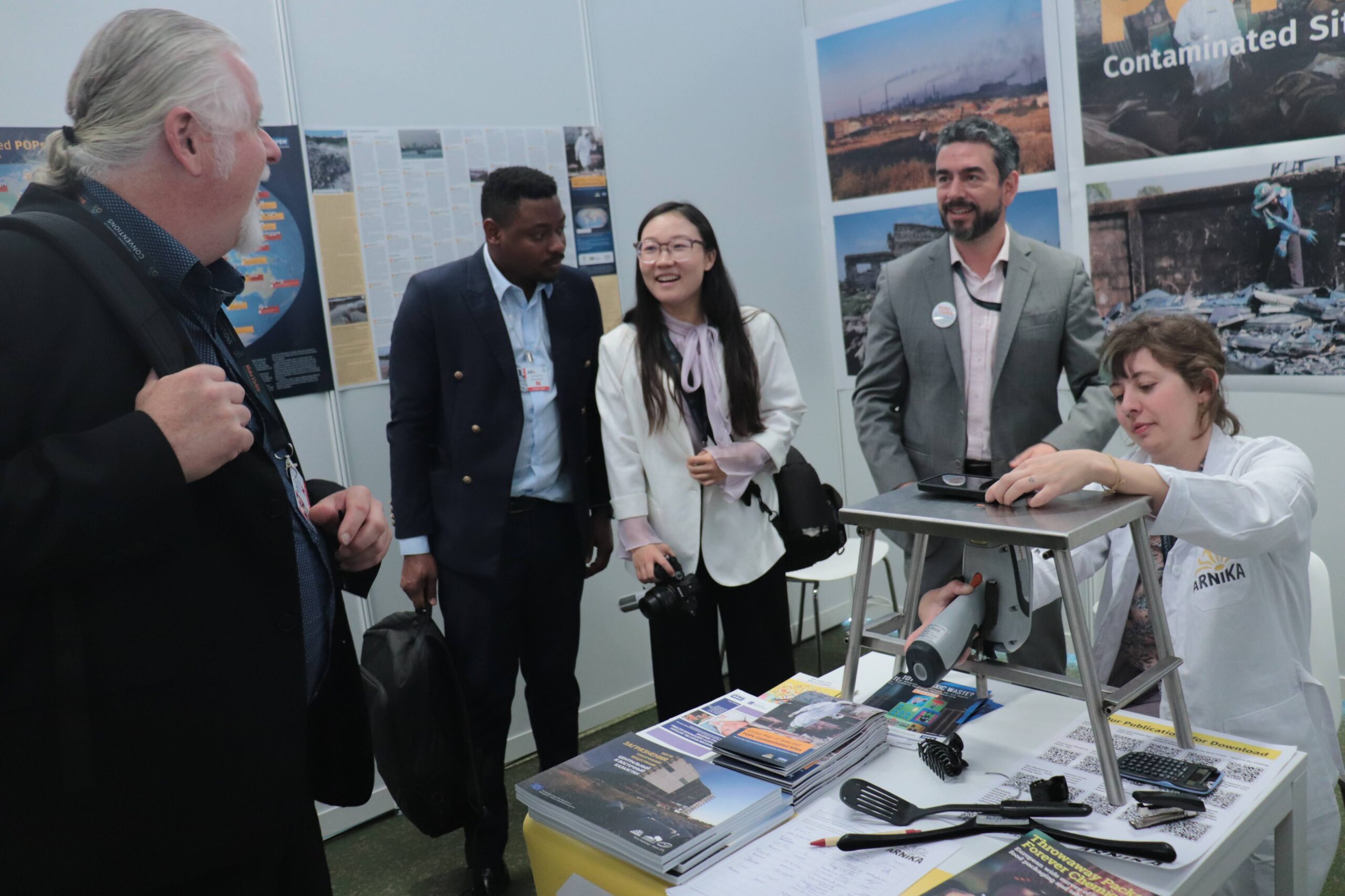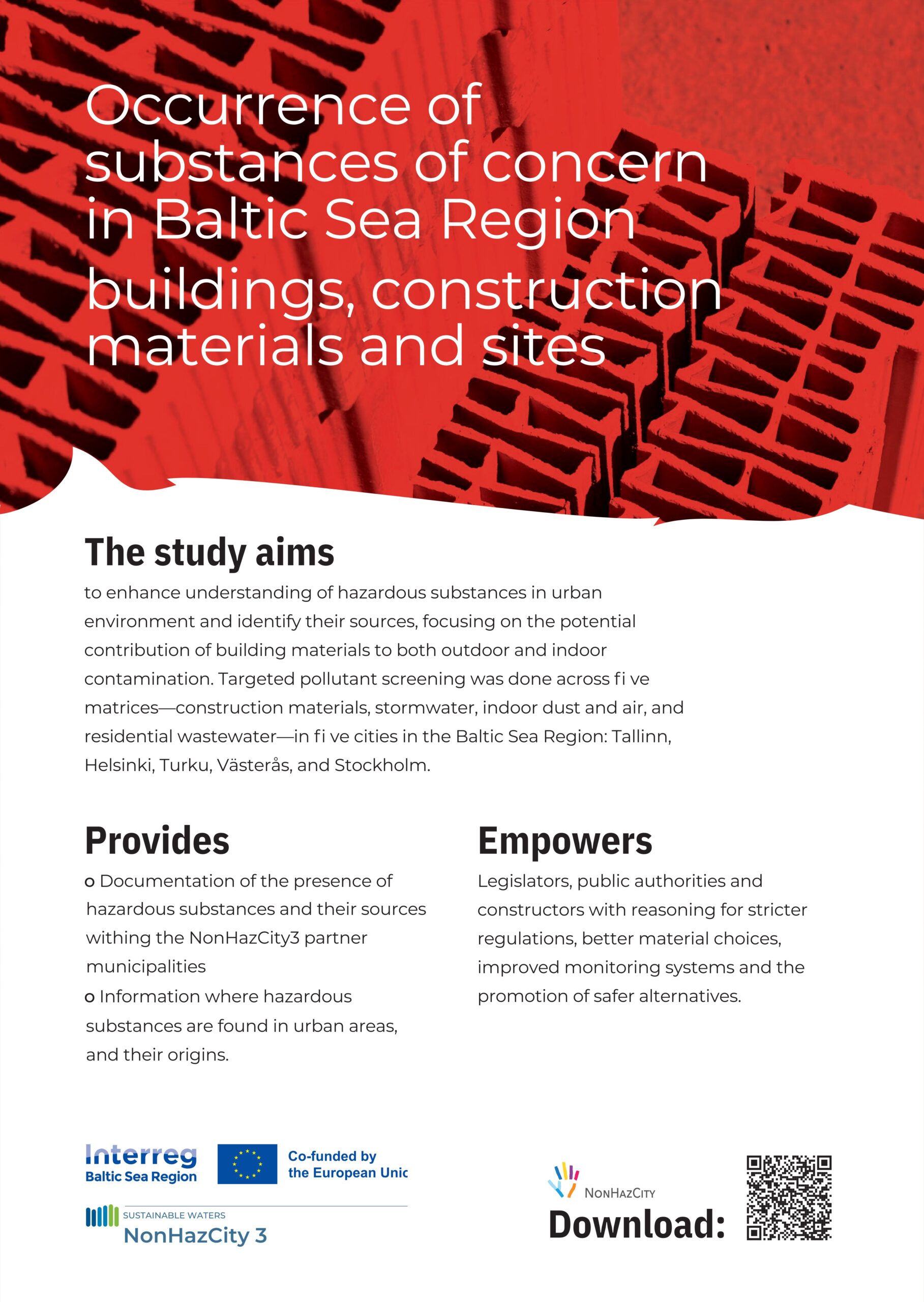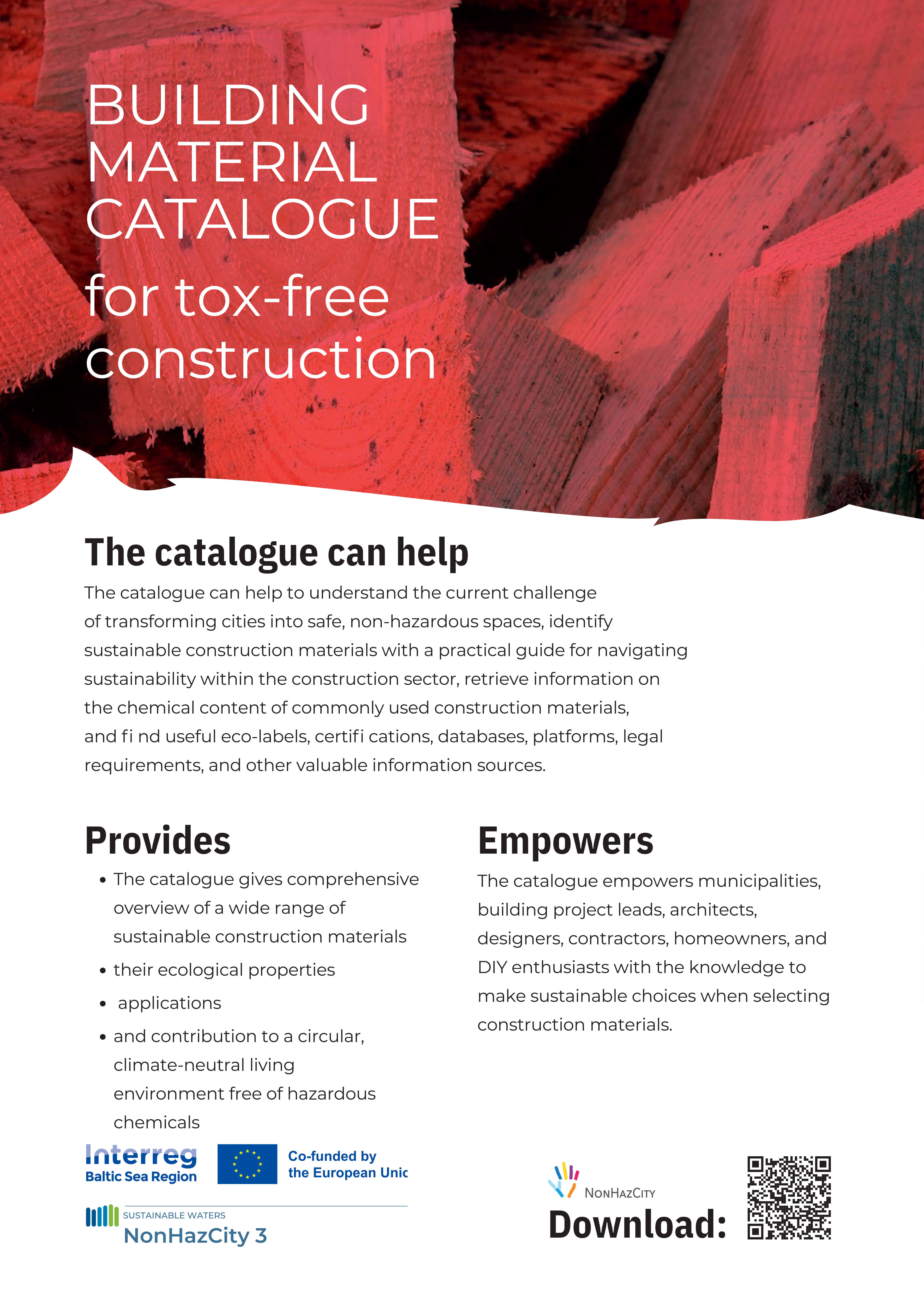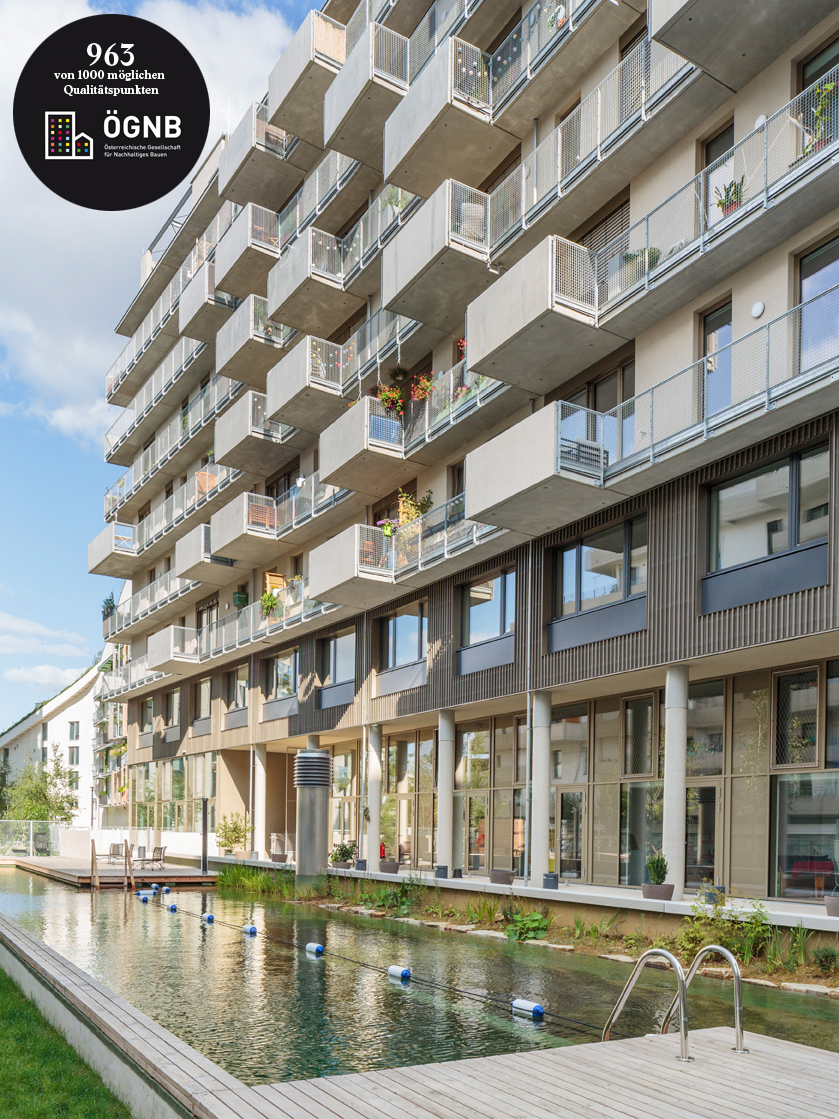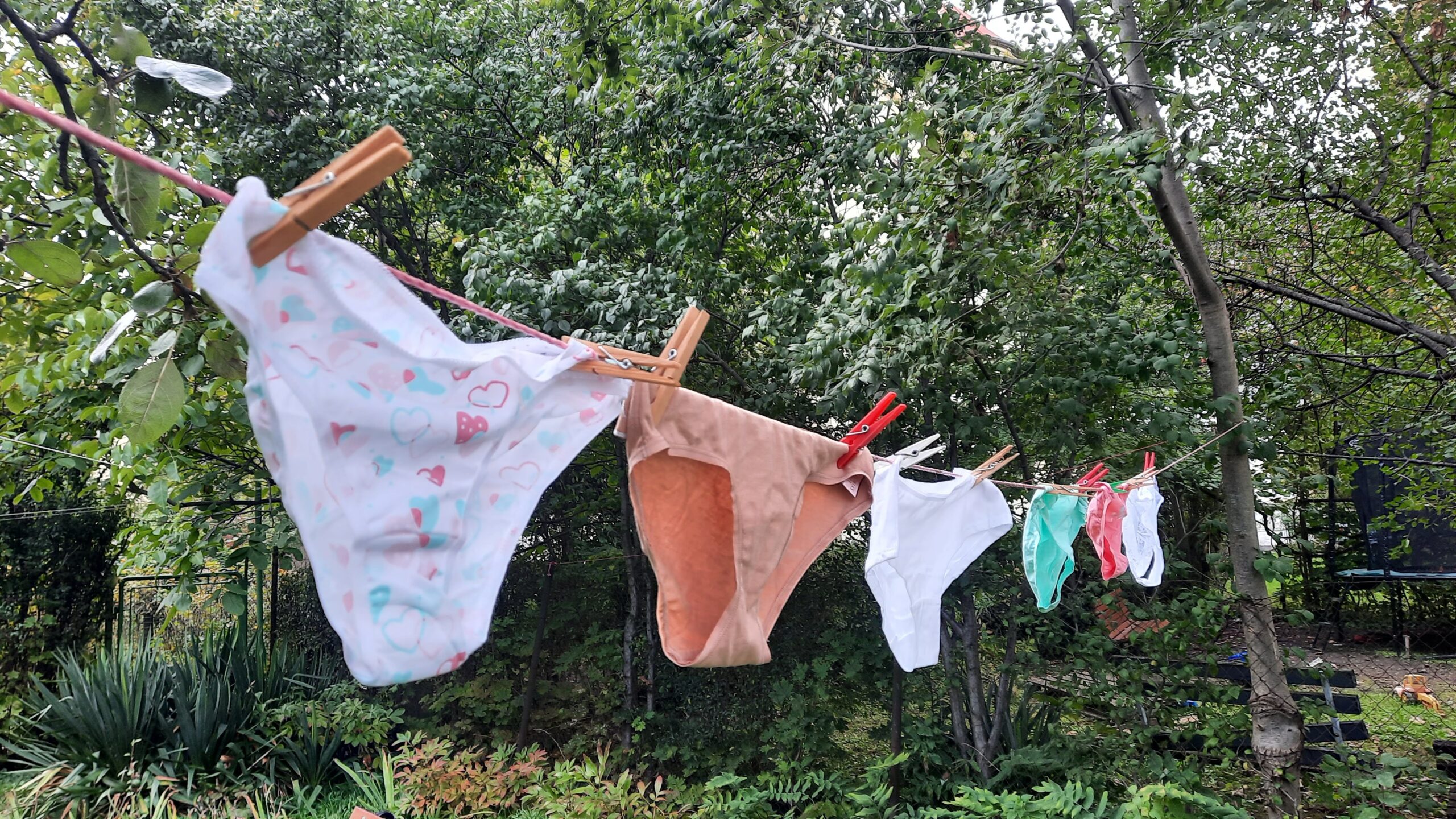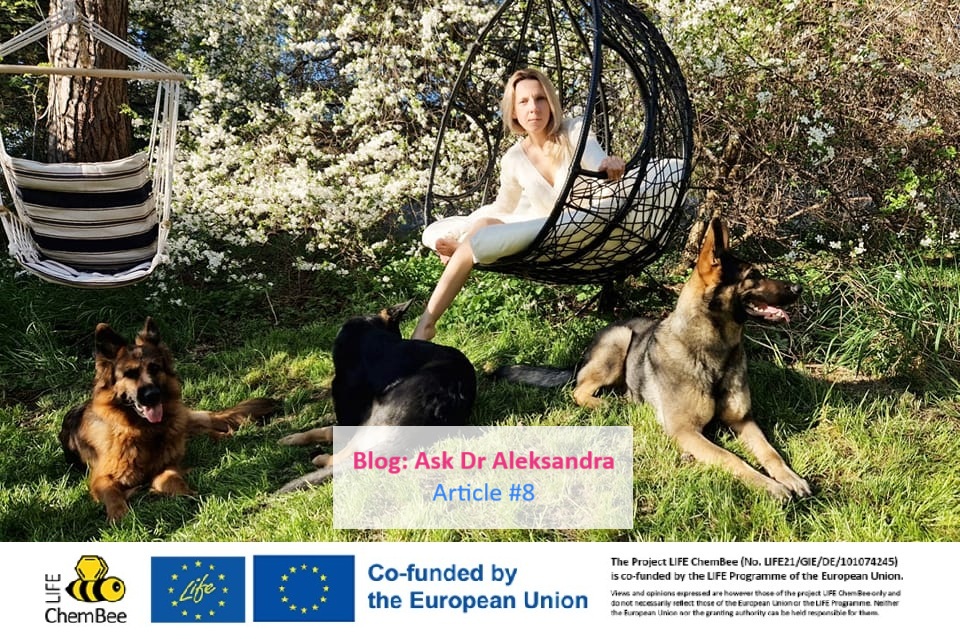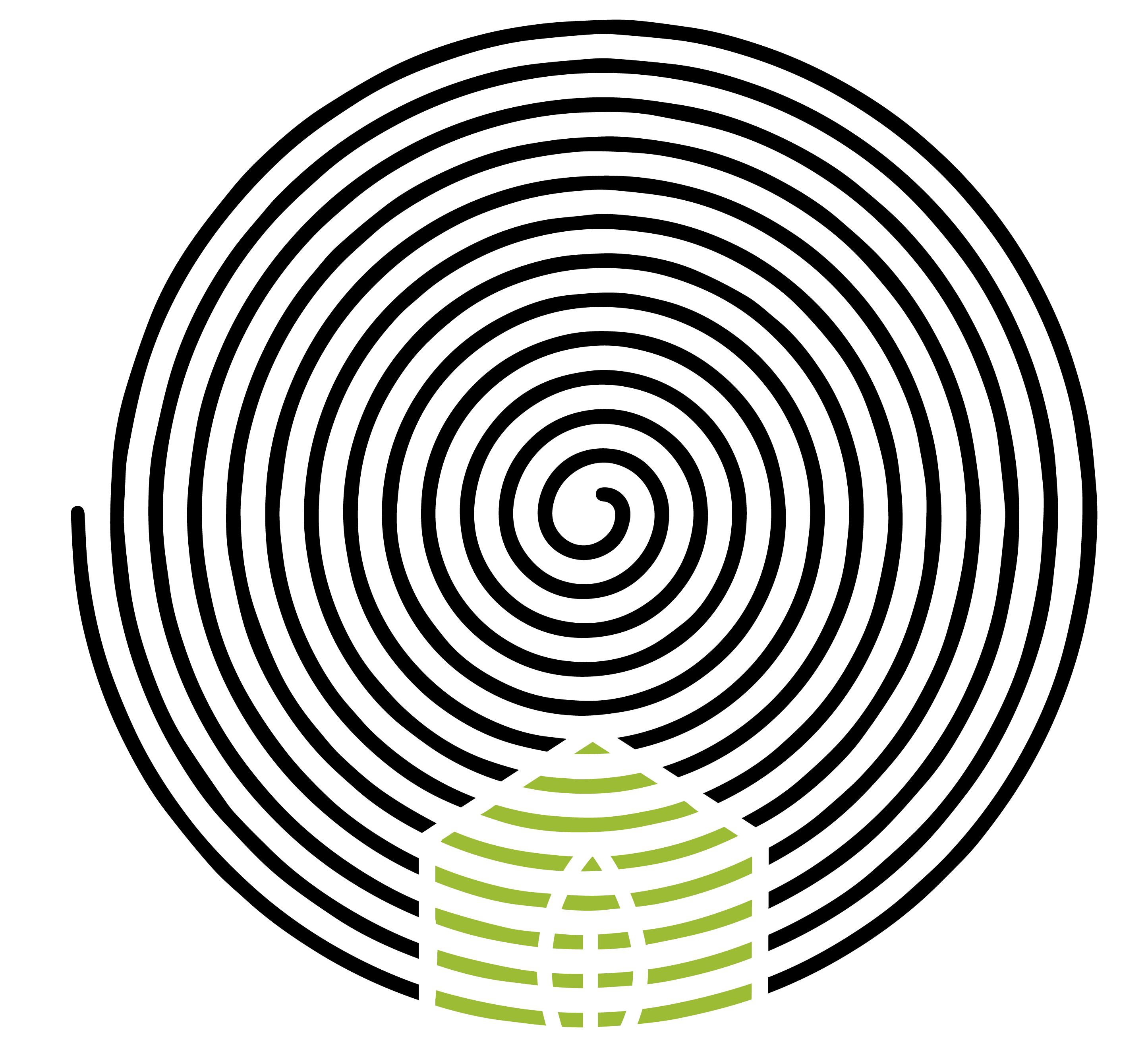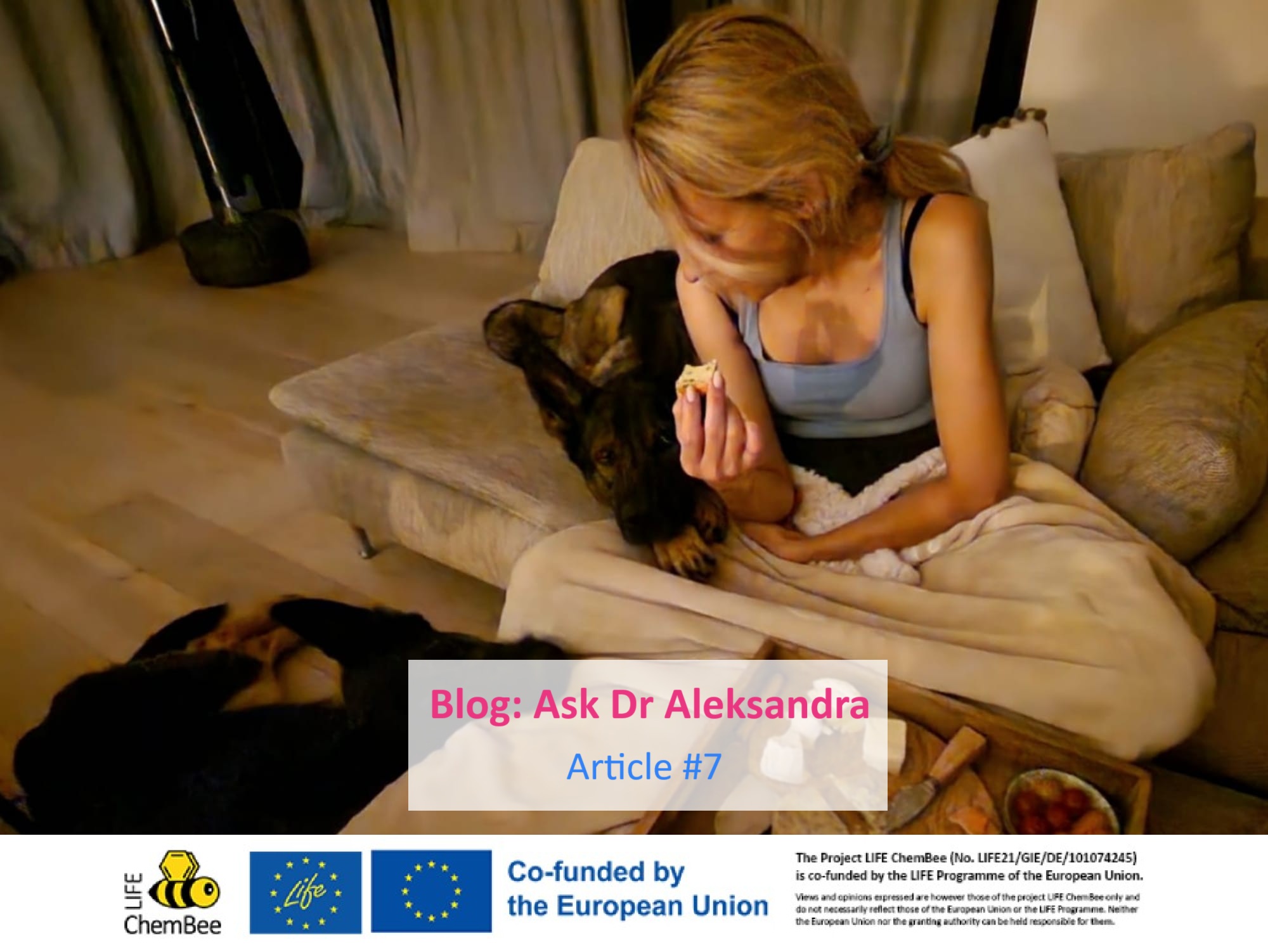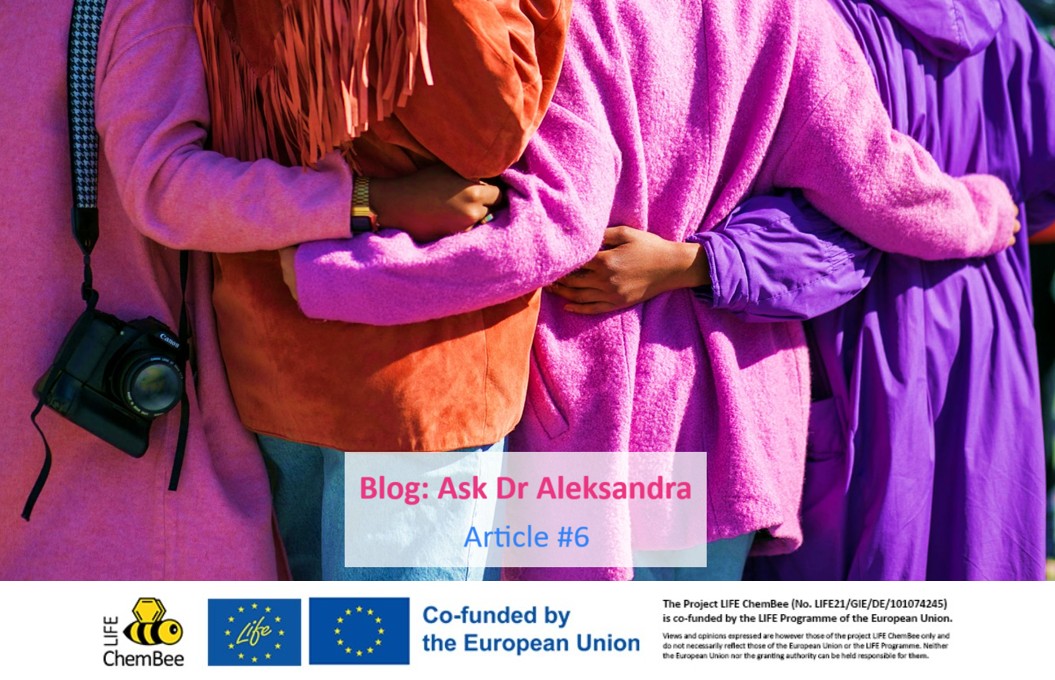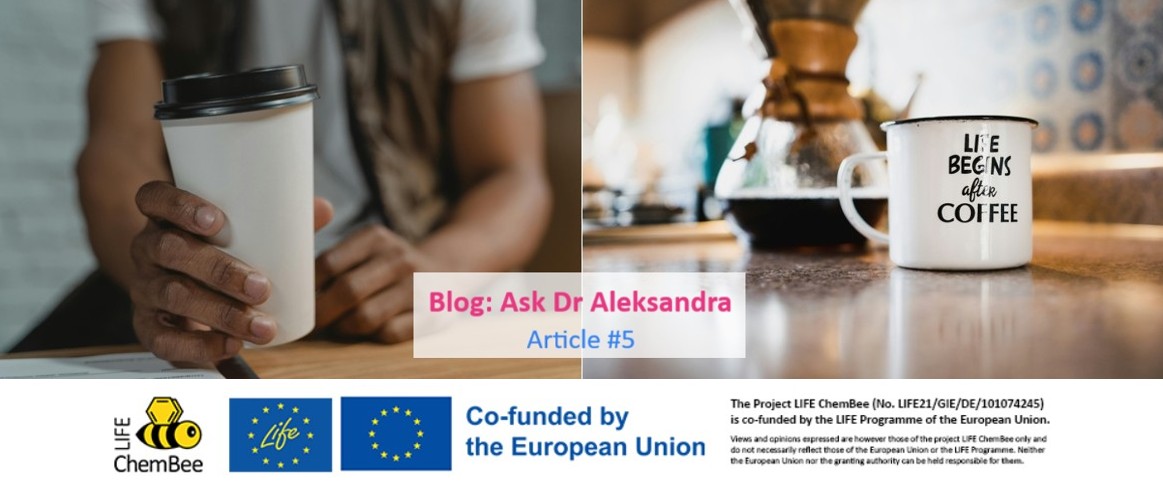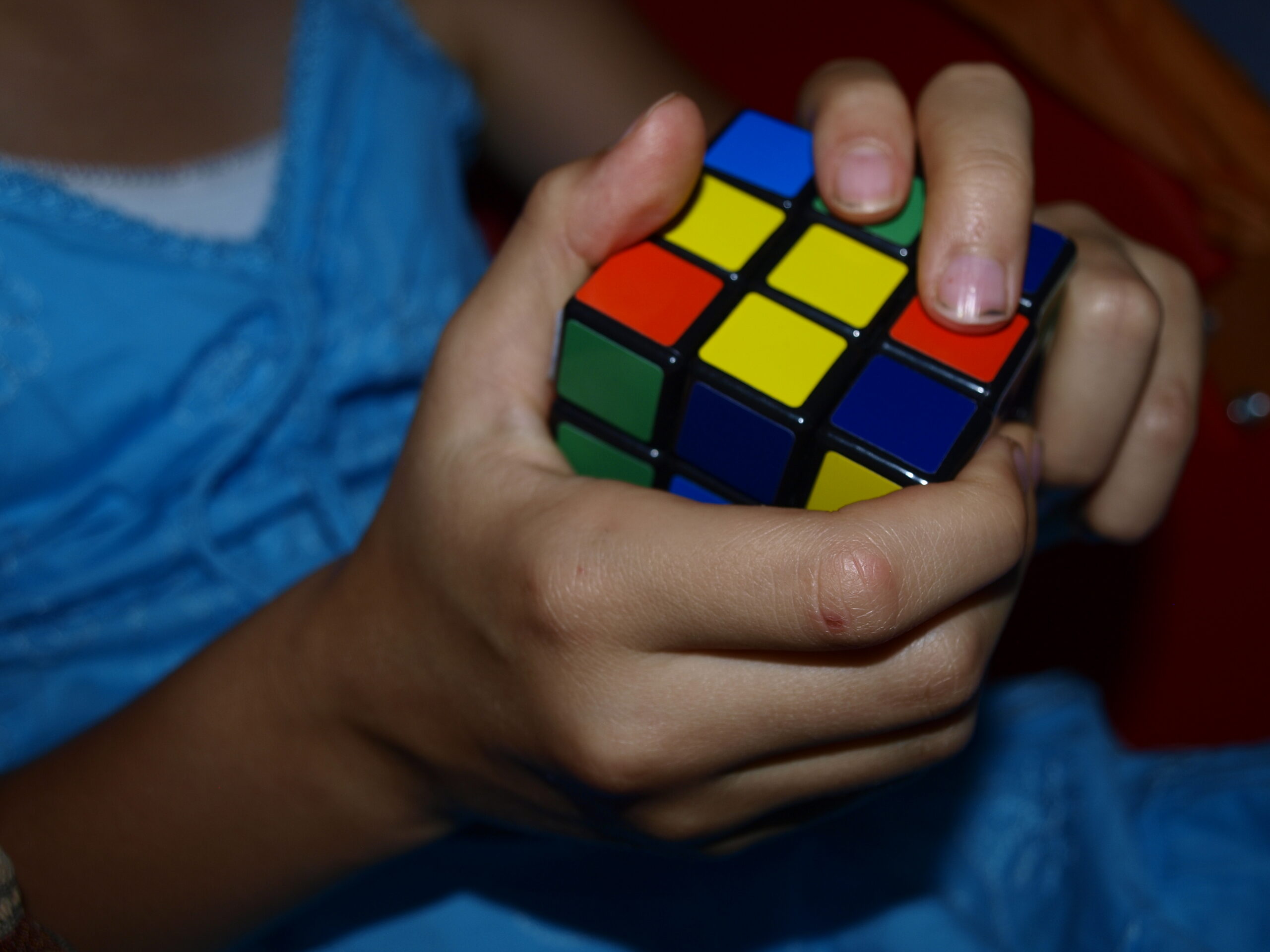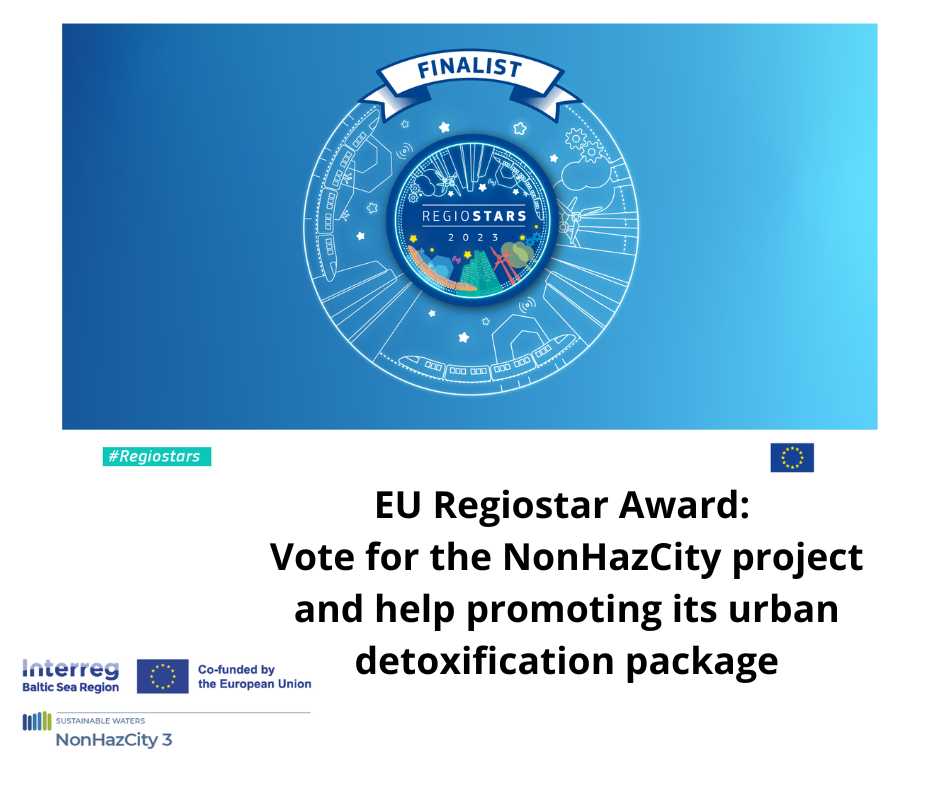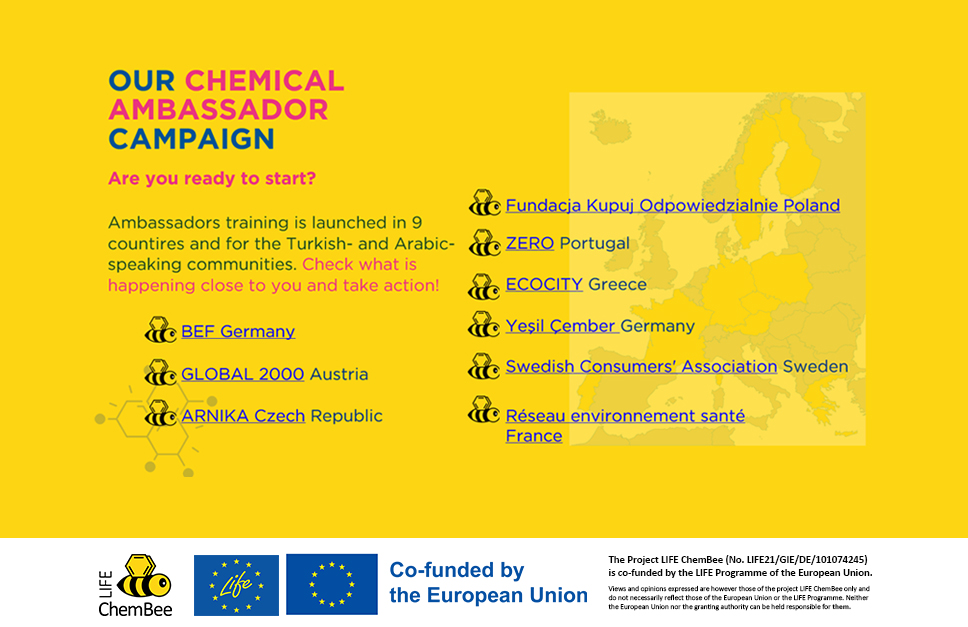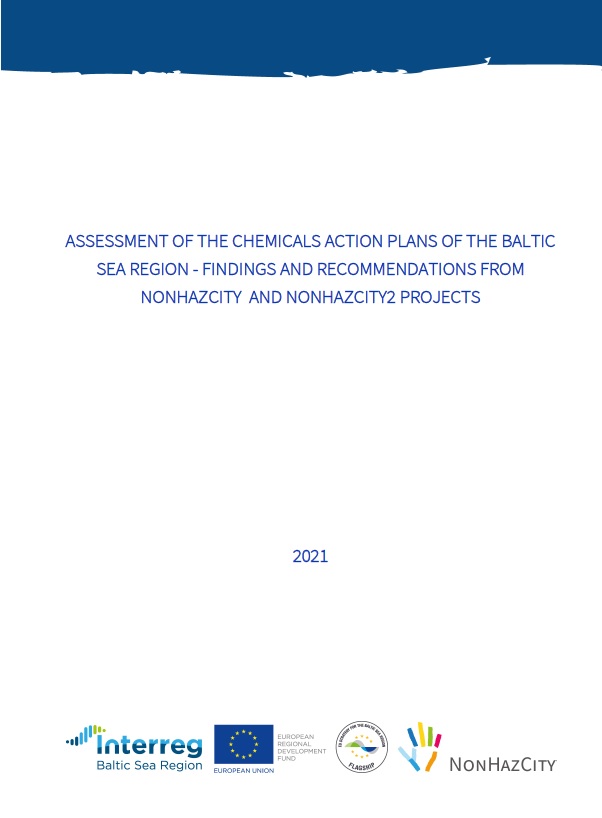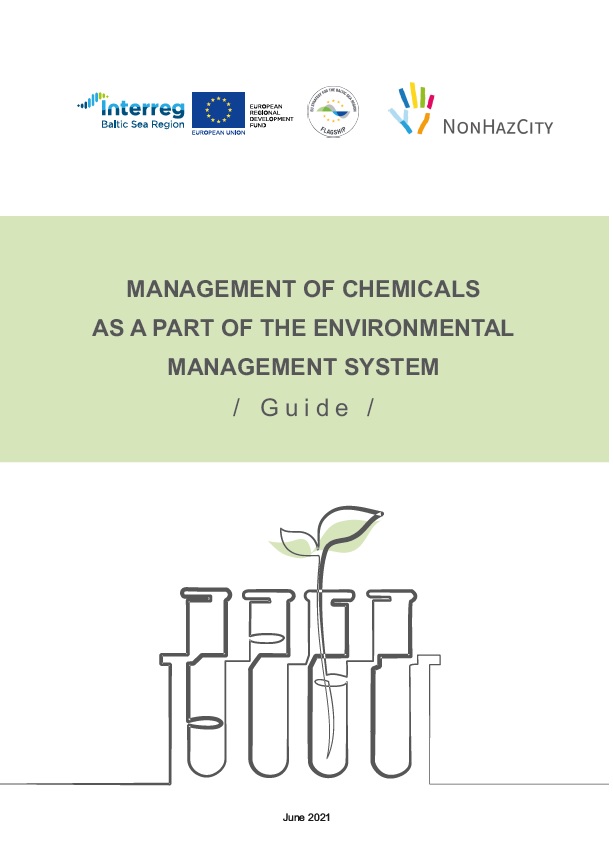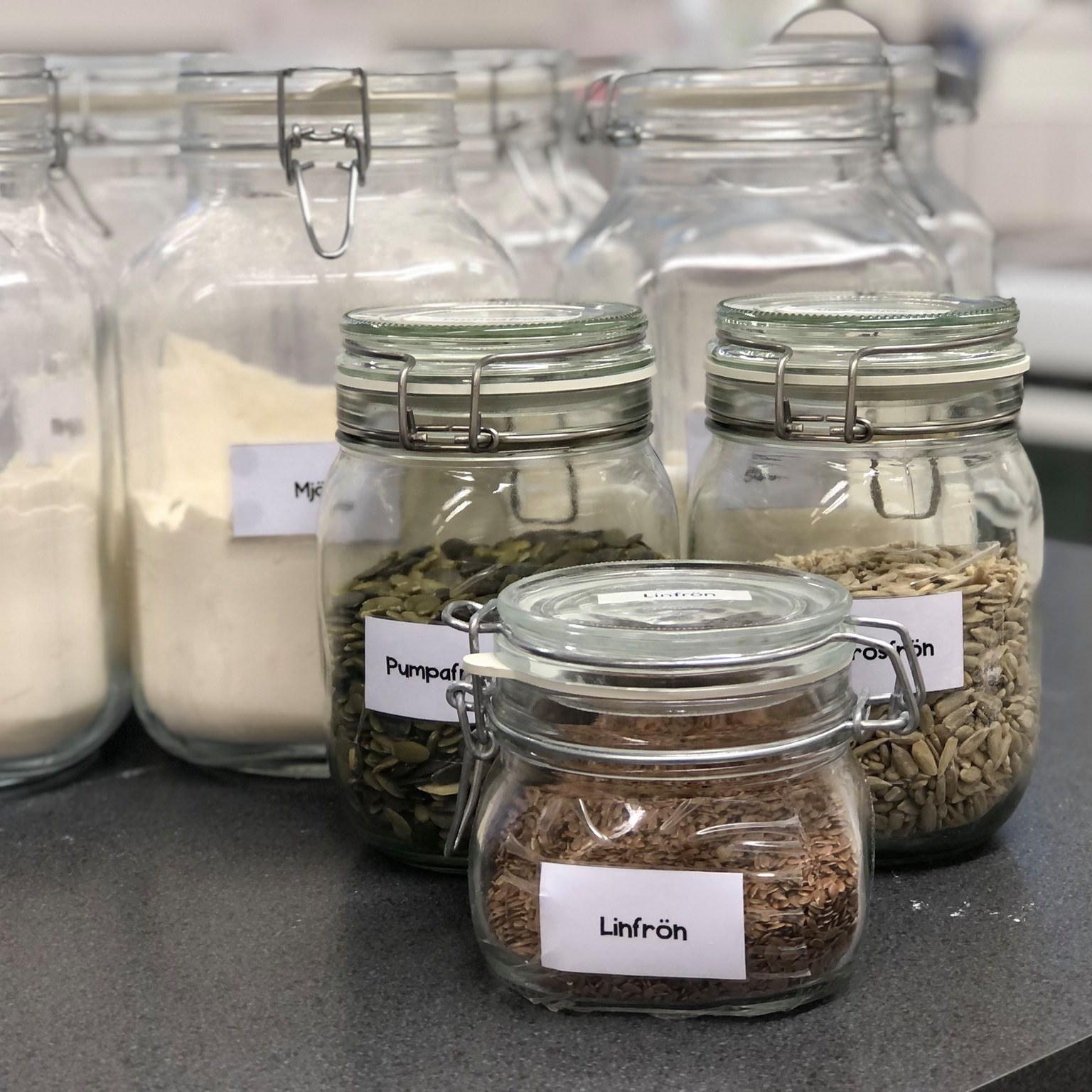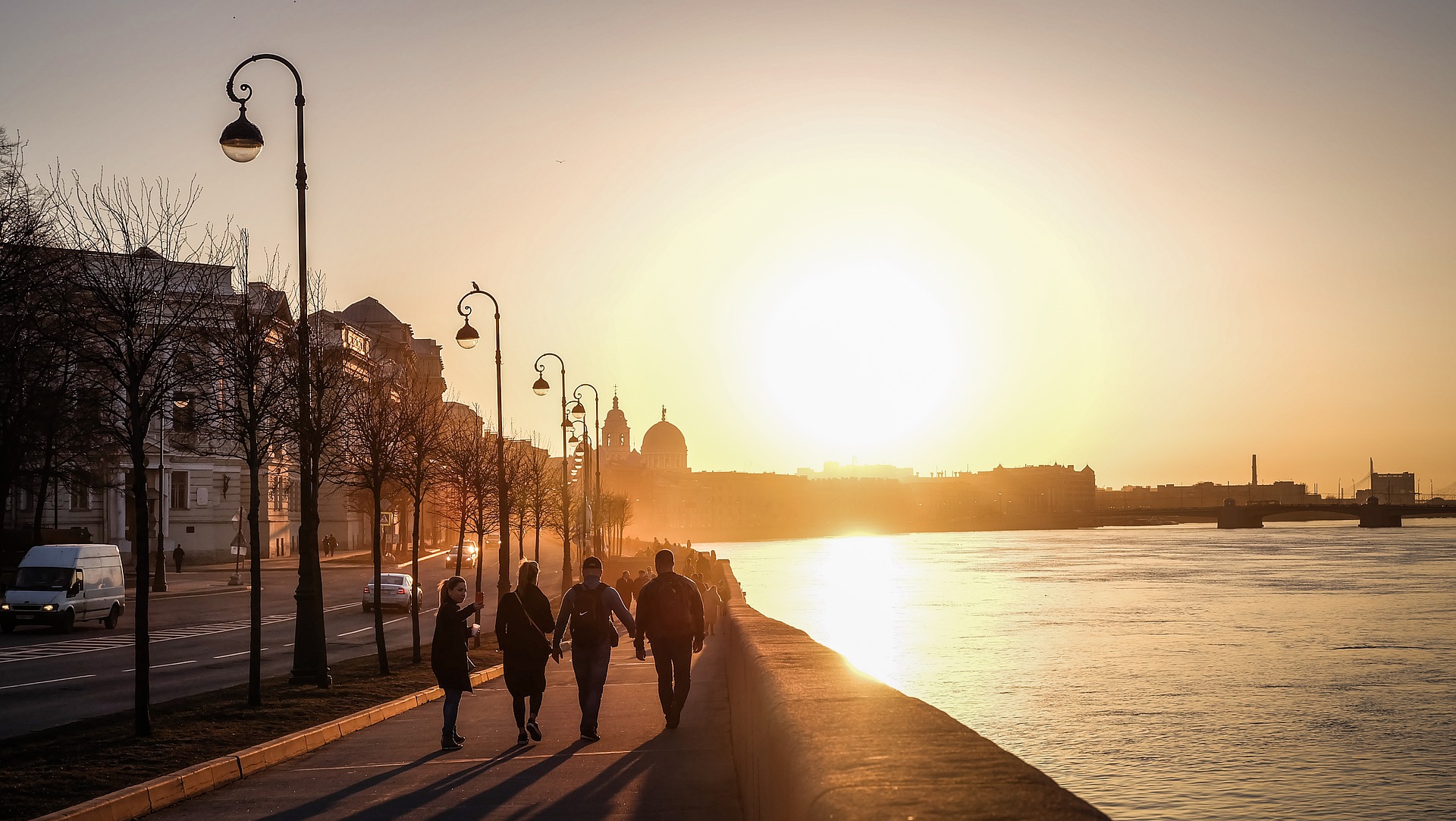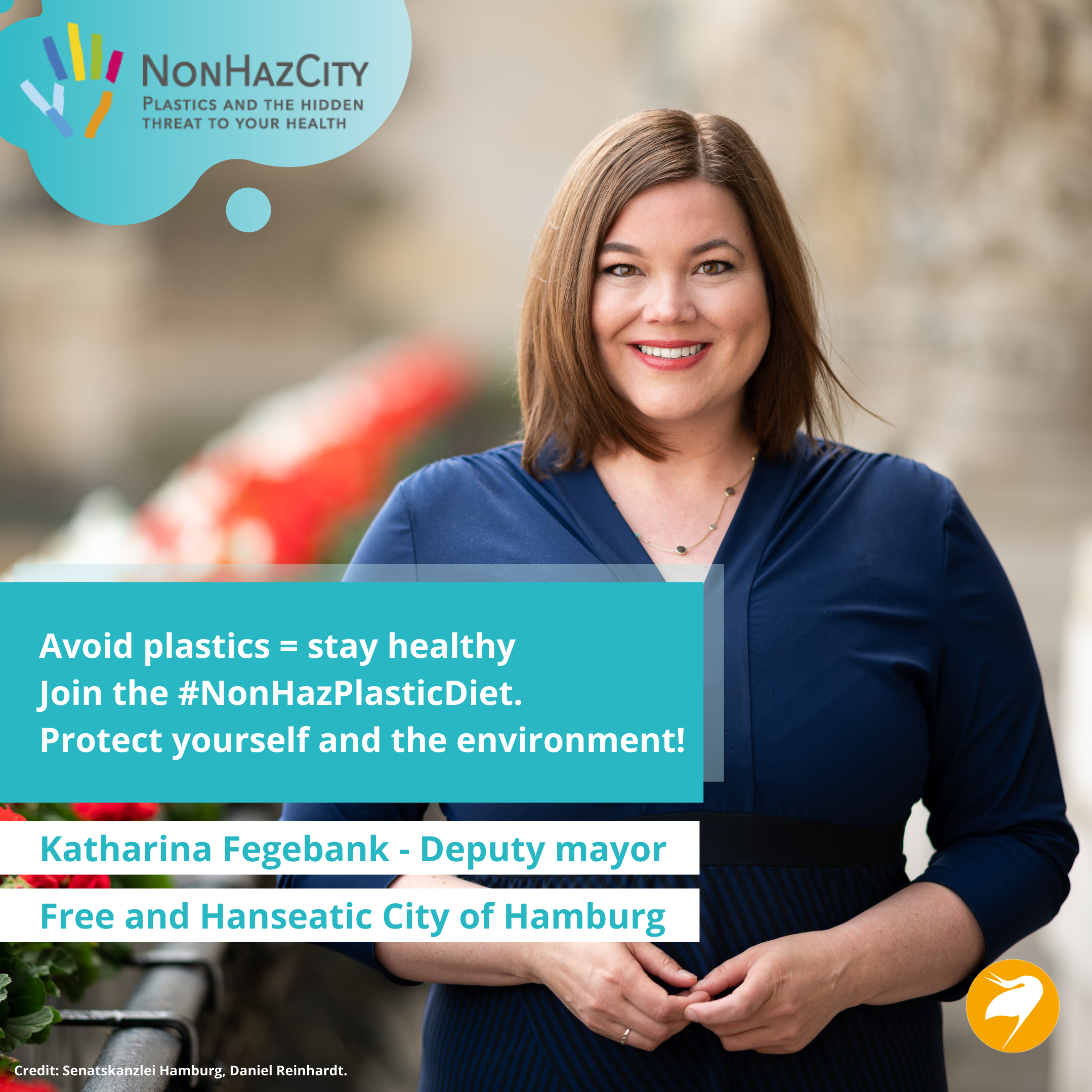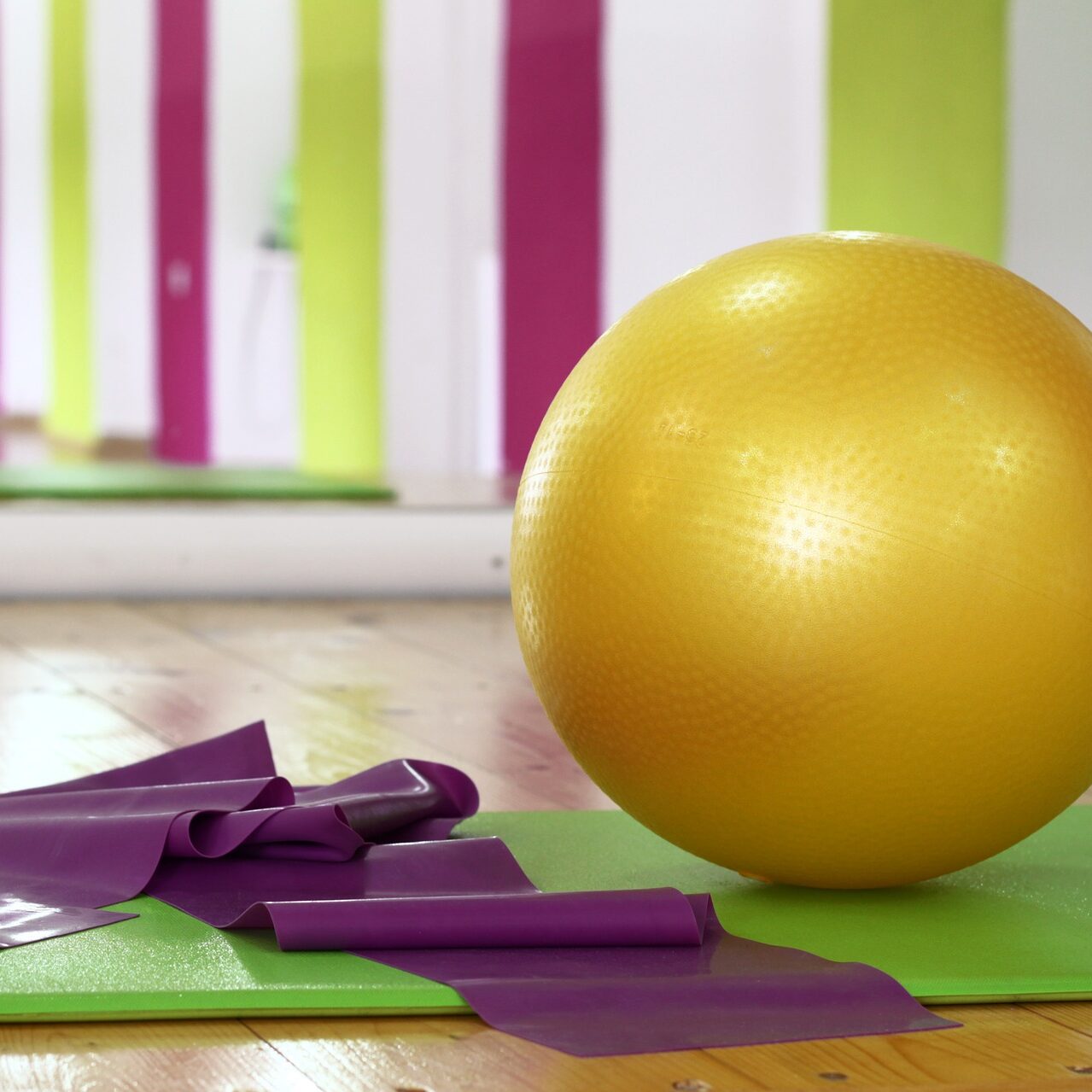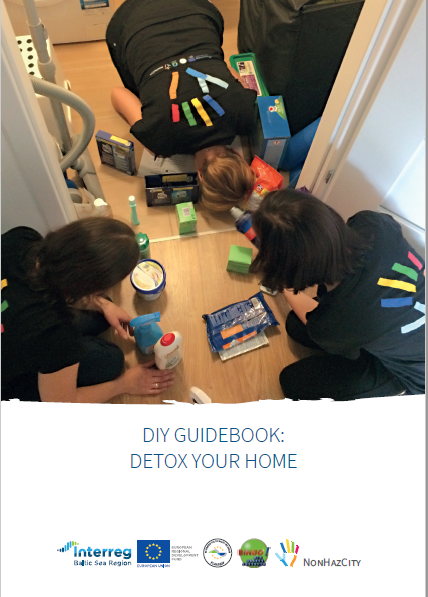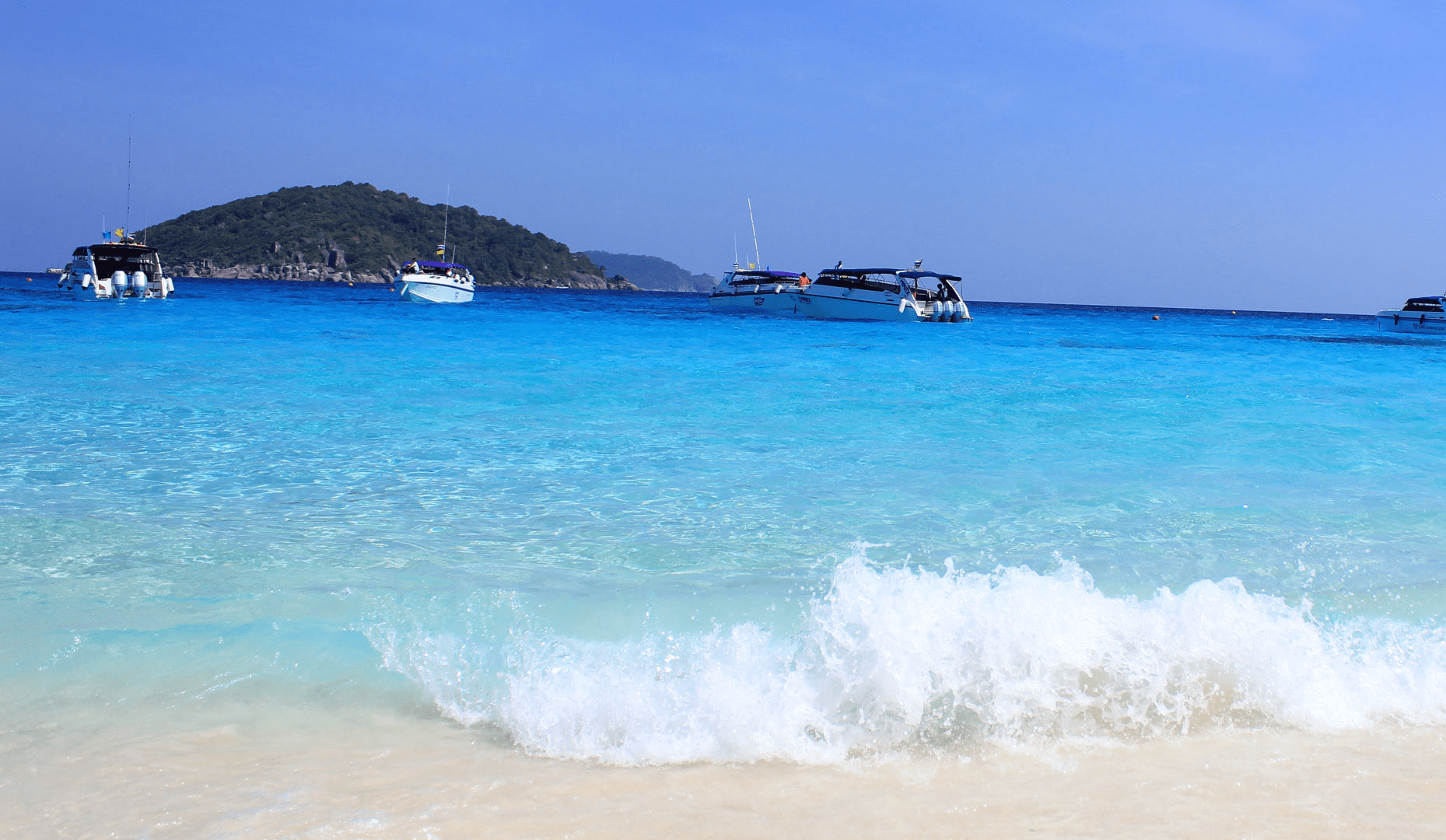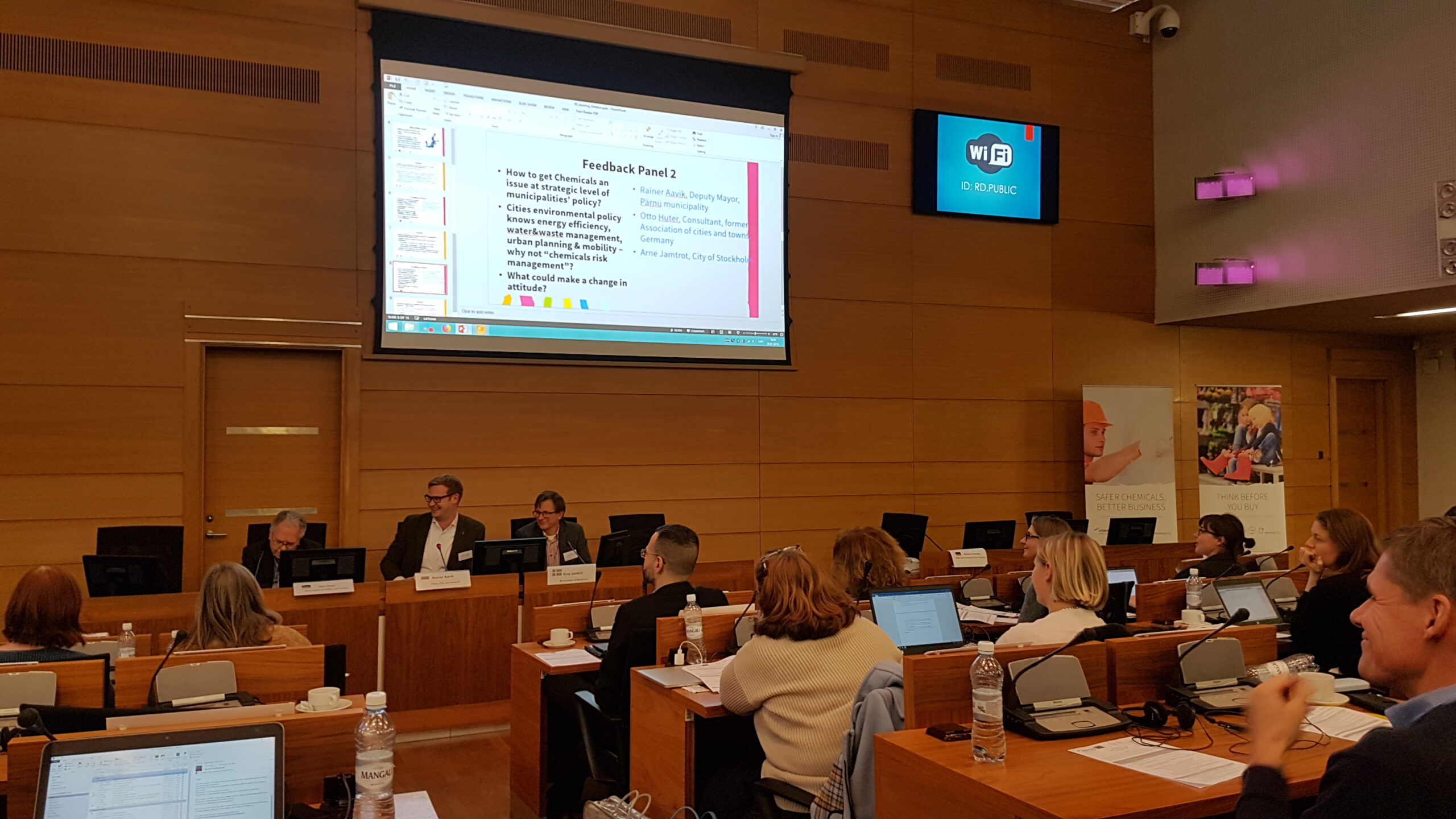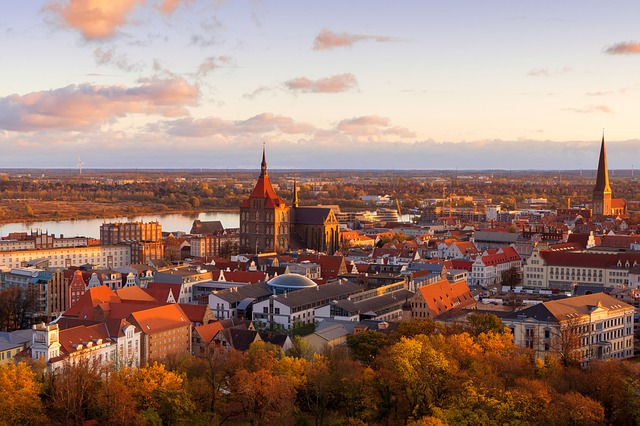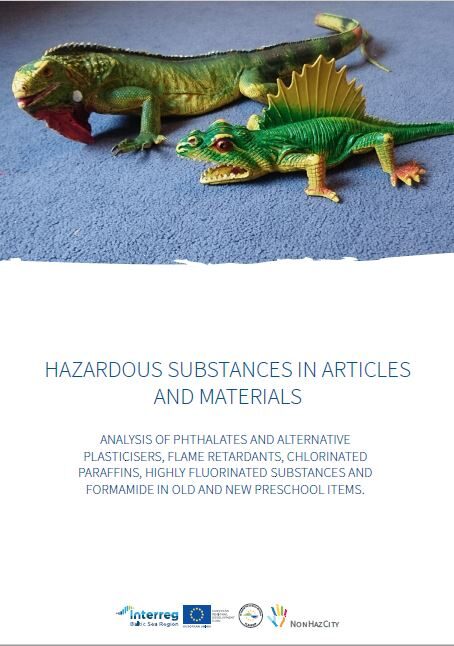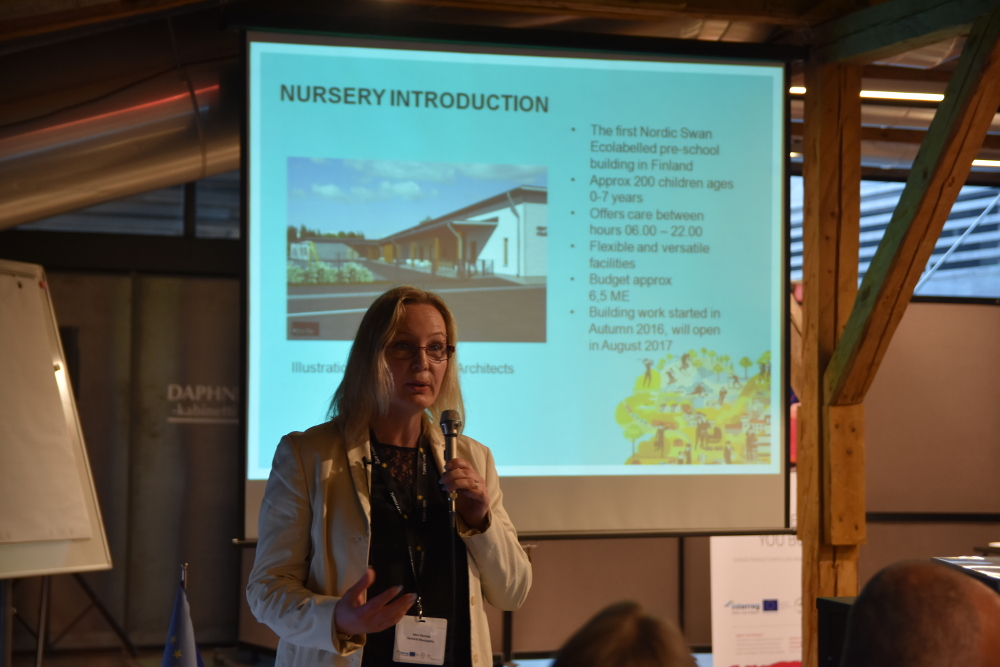Последние новости
Across Europe, growing awareness of the hidden dangers of everyday products has […]
The video gives overview of the step-by-step guide developed in INTERREG Baltic […]
The new platform HAZGONE has been introduced at the INTERREG Baltic Sea […]
Turku University of Applied Sciences Students Lead the Way in Hazardous Substance […]
Partners of the Life Chembee project lauded the significant decisions made at […]
The study focuses on understanding hazardous substances in urban environments, especially how […]
Recently released catalogue is providing a comprehensive overview of cutting-edge sustainable construction […]
Purpose of the Workshop:To facilitate an open dialogue between stakeholders on advancing […]
November 2024, Arnika and consumer associations from Hungary, the Czech Republic, Austria […]
By Dr Aleksandra – medical scientist, biotechnologist, One Health advocate and mother […]
12 March 2025 the World Future Council announced the 10 shortlisted nominations […]
As I step into my morning routine, I pause before choosing breakfast— […]
We all know that screening programmes are essential for early diagnosis and […]
INTERREG BSR NonHazCity3 meets LIFE FitForREACH2: NonHazCity is in its last year […]
Imagine this: You wake up in the morning, brew your coffee, pour […]
Hormone-disrupting substances can be found in all sorts of products for children. […]
A high-level stakeholder dialogue will take place in Vienna under the framework […]
Hormonal balance—that’s what keeps us healthy and promotes well-being. In recent years, […]
Start of Competition for NonHazCity Building Award in the Baltic Sea Region […]
This week is your last chance to give your vote to our […]
The upcoming conference aims to unite cities from the Baltic Sea Region […]
On the 19-20 October, the European Commission is hosting the 5th Annual […]
Delicious strawberries! When you read those words, what comes to mind? Did […]
CheckED app is your personalized guardian against the stealthy hormonal cheaters known […]
Press release LIFE CHEMBEE by Chembee
NonHazCity has been selected as finalist in REGIOSTARS in the category „A […]
As the European Green Capital 2023, the City of Tallinn has made […]
Endocrine disruptors, the sneaky cheaters of the hormonal system, pose significant health […]
In the framework of the the LIFE Chembee project, Dr. Aleksandra Rutkowska […]
Symposium entitled “Prevention and protection against endocrine disrupting chemicals – What roles […]
Hazardous Substances in building materials – a key issue in sustainable construction […]
Link between circular economy, climate neutrality and smart procurement in building materials […]
The project ChemClimCircle equips municipalities with training modules to apply circular procurement […]
LIFE Chemical Ambassadors for Europe Chemical substances are ubiquitous in everyday products. […]
Results of database check encouraging – call for use of the app […]
As Christmas draws nearer, a lot of us will be cracking out […]
Did your TV ever spontaneously combust? Neither did mine, and that’s because […]
Christmas time is a wonderful time for children. They are the ones […]
Christmas decoration containing hazardous chemicals Our recent study found plasticizers in Christmas […]
The most wonderful time of the year is just around the corner […]
The municipal Chemical Action Plans (CAPs) have been one of the main […]
On 15–16 September 2021 the BSR WATER Final Conference will introduce and […]
The NonHazCity 2 Project was a continuation of ‘Innovative management solutions for […]
During 2020 and until July 2021, the city of Västerås has conducted […]
Everyday life in both home and office environments cannot be imagined without […]
The project partners in Russia for the project NHC2 have been Ecological […]
At the start of the NonHazCity project the city of Stockholm already […]
The NonHazCity Plastic Diet campaign ended on June 13 and the results […]
Plastic that is biodegradable? Great, let’s have it! STOP! Not so fast. […]
About 36% of plastic pollution in the oceans consists of a wide […]
From the beginning of our lives we are surrounded by thousands of […]
The Final Conference of NonHazCity 2 will be held on June 15-16. […]
Accessories and decorations Everyone wants to have a nice looking home with […]
Should consumers really have to think about hazardous substances – isn’t that […]
Article by Kai Klein, Baltic Environmental Forum Estonia An important part of […]
On May 3rd the NonHazCity Plastic Diet campaign was launched in 14 […]
Article by Fee Widderich, Baltic Environmental Forum Germany Synthetic fibres consist of […]
Editorial by Martyn Futter, Swedish University of Agricultural Sciences, Associated partner of […]
On 23-24 of March 2021 the XXI International Environmental Forum “Baltic Sea […]
On April 14th – 15th, 2021 the NonHazCity consortium organises a virtual […]
Social Media Campaign – The NonHazCity Plastic Diet 3 May 2021 – […]
In LIFE AskREACH project’s New Year’s-testing 82 samples were analysed and results shows […]
During 2020 the city of Västerås has carried out a plastic diet […]
On 25th November, 10:00 – 15:00 CET a workshop on “Integration of chemicals risk […]
We are glad to announce that on Thursday, 05.11.2020, at 14 o’clock […]
Out of five finalists with impressing performances, we are proud to announce […]
This final gave us a reason to celebrate: Out of five finalists […]
After two intense months of social media campaigning, the time has finally […]
During 2019 – 2023, a major rebuilding of the Irstaskolan school is […]
The NonHazCity project has produced new animated videos to promote a life […]
With our project, “NonHazCity”, we participated in the “Project Slam” competition for […]
International Seminar ‘Right plastic at right places’ March, 10-11 2021 in Pärnu, […]
The City of Västerås kick-started a Plastic Diet on the 6th of February […]
LIFE interviewed NonHazCity 1 manager Arne Jamtrot from the City of Stockholm […]
Companies must strongly improve their communications on hazardous substances in everyday items!
NonHazCity starts its extension phase with a kick-off meeting in Riga, 3-5 […]
Small and medium size enterprises represent 99% of all businesses in the […]
The overall aim of the project NonHazCity project was to decrease release […]
On Tuesday and Wednesday (09/-10/04/19) the BEF Germany Team participated at the […]
The final conference of NonHazCity was held in the end of January […]
Municipalities have many tools to promote environmentally smart actions. Due to its […]
The NonHazCity project, flagship of the Baltic Sea Region, is ending on […]
Reducing our exposure to hazardous substances requires concrete actions by all sectors […]
On Thursday (10/01/2019) the BEF Germany Team will visit the INTERREG Secretariat […]
Many old resting mattresses and toys in Stockholm’s pre-schools have been replaced […]
Christmas is the season to be jolly. A time full of happiness […]
Seminar on 23-24(25) October 2018 in RIGA, Latvia. Organised by the EU-funded […]
Tracking sources of hazardous substances is one part of the NonHazCity project. […]
Within the NonHazCity project a screening survey of hazardous substances has been performed in wastewater and stormwater samples from six municipalities around the Baltic Sea: Pärnu, Kaunas, Šilalė, Riga, Gdańsk, and Turku. Furthermore, a suite of chemicals were analysed in a range of indoor items from Stockholm preschools and offices.
Results and conclusions from the NonHazCity substance screening and source tracking activities in eight municipalities in the Baltic Sea region will be published on 19th of October at 10:00 AM (CET). A public event will be held in Pärnu, Estonia in the frame of the Estonian presidency of the Council of the European Union. We are inviting all interested parties to join our live broadcast!
Approximately 200 children in Hyvinkää (Finland) attend the first Nordic Swan eco-labeled pre-school building in Finland. Building this nursery took one year and cost about 6,5 million euros. Inkeri Kontiola, procurement specialist in Hyvinkää City municipality, is convinced that this experience will make similar procurements much easier.
Talking to businesses about hazardous substances can be a difficult task. The topic is often too complex and detailed and it is hard to find a way to get the ball rolling. Johan Galster, a chemical engineer and inspector at the Environmental Department in the City of Copenhagen, found a way of dealing with hazardous substances. He shares his experiences on how to make the dangers of hazardous substances more understandable for people of all occupations and abilities.
Formerly common practice to bring unused pharmaceuticals to the local pharmacy is not the case in Germany anymore, as since 2009 the pharmacies are no longer obliged to accept the medicaments back. Each Federal State in Germany has own strategy how to dispose the expired or unused pharmaceuticals. Different disposal practices confuse in the population and lead to the typical mistakes like throwing the medicaments to the sewer.
It is impossible for an end user or procurement officer to know all the latest market developments. Similarly, no company can have a complete understanding of municipal purchasing requirements. Information sharing and other forms of cooperation can be beneficial for both the market and municipalities. This can send a clear message that there is a market for products free of hazardous substances, and that there are good business opportunities in meeting this demand.
Hazardous substances should be included in the decision-making process when municipal organisations, such as kindergartens, school, hospitals etc., define what kind of products or services they want to buy. During the first step of the procurement process when specifications are written, we have the biggest influence on the potential to reduce hazardous substances in products and services.
Hazardous substances was a hot topic in Pärnu, Estonia during the first week of April. On 5th of April representatives of cleaning services of that region were invited to a training on hazardous substances in cleaning products. Only three days later Pärnu City was celebrating its 766th anniversary. Among dozens of other events, there was a lecture on a subject "Hazardous substances in our everyday products" held.

